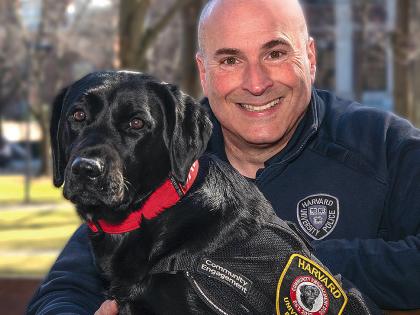Beyondorders.org helps U.S. service members “rise above the call of duty” to aid Iraqi civilians. Tin-Yun Ho ’07 (’08) thought up and helped create the website last year, after reading about a civil-affairs officer who had organized a school-supplies drive for Iraqi children among her friends and family back home. “She was able to channel so much good will into an Iraqi neighborhood,” he says. “I wanted a way to link more soldiers in Iraq with Americans who want to help.”
The project is a kind of “Craigslist for soldiers and marines in Iraq,” explains cofounder Katharine Buzicky, J.D. ’07, now a military lawyer. The group aims to make it “easy, secure, and efficient” for military personnel to request items needed by ordinary Iraqis—eyeglasses, shoes, bandages, soccer balls, mechanics’ coveralls, sewing machines—from anyone in America “willing and able to assist,” and for donors to offer supplies that may be useful. Beyondorders facilitates matches, provides donors with APO addresses for the military recipients, keeps tabs on shipments, and posts on its website the recipients’ accounts, and often their photographs, of how the donations have been used in Iraq.
“Small things can have a big impact,” says cofounder Matthew Scherrer, M.B.A. ’07, who spent four years in the army in Afghanistan and Iraq before attending the Business School. He and Ho, who was busy trying to put his idea into practice, were introduced by a House tutor and began organizing a network of fellow students, including Buzicky, who helped with such legal details as incorporation. (“Beyond Orders is a great model for how [Harvard] schools that tend to be fairly segregated can work together,” says Scherrer.) They approached alumni, and Scherrer contacted and rallied military units behind the exchange program: to date, Beyondorders has registered more than 30 service members and completed more than 100 donations—one with 750 packages of school supplies.
Board members Buzicky, Ho, Scherrer, and West Pointer Rajiv Srinivasan continue working to get more military and civilian volunteers involved. When Ho, who took a semester off to set up the site (tutoring to raise money to keep it going), was interviewed by a local TV station, he told viewers, “I need you to get on the site, register, and tell the troops in Iraq what you can do.” That’s still true.







